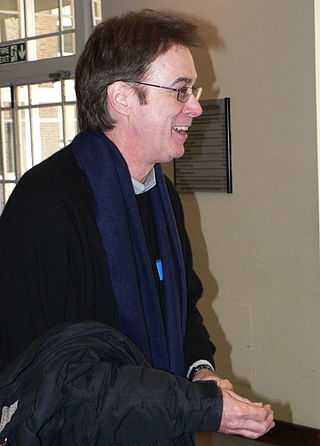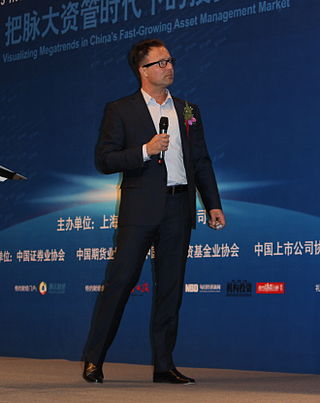A futures exchange or futures market is a central financial exchange where people can trade standardized futures contracts defined by the exchange. Futures contracts are derivatives contracts to buy or sell specific quantities of a commodity or financial instrument at a specified price with delivery set at a specified time in the future. Futures exchanges provide physical or electronic trading venues, details of standardized contracts, market and price data, clearing houses, exchange self-regulations, margin mechanisms, settlement procedures, delivery times, delivery procedures and other services to foster trading in futures contracts. Futures exchanges can be organized as non-profit member-owned organizations or as for-profit organizations. Futures exchanges can be integrated under the same brand name or organization with other types of exchanges, such as stock markets, options markets, and bond markets. Non-profit member-owned futures exchanges benefit their members, who earn commissions and revenue acting as brokers or market makers. For-profit futures exchanges earn most of their revenue from trading and clearing fees.
Jack Schwager is a trader and author. His books include Market Wizards (1989), The New Market Wizards (1992), Stock Market Wizards (2001) and Unknown Market Wizards: The best traders you've never heard of (2020). He is a well-known author, fund manager and an industry expert in futures and hedge funds. He's published a number of books, such as Market Wizards.
Monroe Trout, Jr. is a retired financial speculator and hedge fund manager profiled in the book New Market Wizards by Jack D. Schwager. Monroe Trout, Jr.'s expertise is in quantitative analysis, with pattern recognition backed by statistical analysis. He subscribes to Ayn Rand's Objectivism. He has traded stocks, stock index futures, commodity futures, and options on all these, both for his own account and as an advisor for others.

Charles Faulkner is an American practitioner of neuro-linguistic programming (NLP), life coach, motivational speaker, trader and author. He has written several books and audio tapes on NLP, which is largely considered a pseudoscience.

Michael Phillips Marcus was a commodities trader who, in less than 20 years, is reputed to have turned his initial $30,000 into $80 million.

Commodities Corporation was a financial services company, based in Princeton, New Jersey, that traded actively across various commodities. The firm was noted as one of the leading commodity and futures trading firms. CC is credited for launching the careers of many notable hedge fund investors and for its influence on global macro investing.
Lawrence D. Hite is a hedge fund manager who, along with Ed Seykota, is one of the forefathers of system trading. He is the author of the book, The Rule: How I Beat the Odds in the Markets and in Life—and How You Can Too, which was named a Wall Street Journal, LA Times, and Porchlight Books bestseller.
Linda Bradford Raschke (/'ræʃki/) is an American financier, operating mostly as a commodities and futures trader.
Thomas F. Basso is an American hedge fund manager. He was president and founder of Trendstat Capital Management. He is the author of two books, Panic-Proof Investing and the self-published The Frustrated Investor. In 1998, he was elected to the board of the National Futures Association.
William Eckhardt is a trader.
Martin S. Schwartz is a Wall Street trader who made his fortune successfully trading stocks, futures and options. He received national attention when he won the U.S. Investing Championship in 1984. Schwartz is the author of Pit Bull: Lessons from Wall Street's Champion Day Trader.
Lucian Thomas Baldwin III is a bond trader investor and founder of the Baldwin Group of companies. He was described by the Wall Street Journal as a trader who can singlehandedly move the Treasury bond market. He often trades the 30-year bond in the pits of the Chicago Board of Trade.
Robert Krausz was an Israeli commodities and futures trader.
An automated trading system (ATS), a subset of algorithmic trading, uses a computer program to create buy and sell orders and automatically submits the orders to a market center or exchange. The computer program will automatically generate orders based on predefined set of rules using a trading strategy which is based on technical analysis, advanced statistical and mathematical computations or input from other electronic sources.

Jake Bernstein is President of Network Press, Inc. in Santa Cruz, California. Bernstein claims expertise in seasonal trading and has developed methods of trading in futures markets, and has been a featured speaker at many investment conferences and trading seminars. In 1999, Bernstein was fined by the National Futures Association $200,000 and permanently barred from NFA membership for not using proper disclaimers in his materials rendering the ruling "using misleading and deceptive Promotional Material".
Louis B. Mendelsohn is chairman and chief executive officer of Vantagepoint ai, LLC which he founded in 1979 to develop technical analysis trading software for self-directed traders. His work primarily deals in Artificial Intelligence and Intermarket Analysis to the financial markets.

Michael W. Covel is a bestselling author, entrepreneur, and film director. In 1996, he co-founded TurtleTrader.com, later expanded into TrendFollowing.com, a popular online resource focused on investment style known as trend following, which allows investors to profit in both up and down markets.

Carley Garner is an American commodity market strategist and futures and options broker and the author of Trading Commodity Options with Creativity, Higher Probability Commodity Trading, and A Trader's First Book on Commodities, published by DT publishing an imprint of Wyatt-MacKenzie. She has also previously written four books published by FT Press, Currency Trading in the FOREX and Futures Markets, A Trader's First Book on Commodities, and Commodity Options. Commodity Options was named one of the "Top 10 Investing & Trading Books of 2009" by SFO Magazine. A Trader's First Book on Commodities was named as the best futures trading book in 2021 by a UK financial education website. Garner was also featured in FT Press' e-book series entitled "Insights for the Agile Investor", and an educational video series. Carley can also be found at TradersEXPOs and MoneyShows throughout the country.
Perry J. Kaufman is an American systematic trader, rocket scientist, index developer, and quantitative financial theorist. He is considered a leading expert in the development of fully algorithmic trading programs.

Interactive Brokers LLC (IB) is an American multinational brokerage firm. It operates the largest electronic trading platform in the United States by number of daily average revenue trades. The company brokers stocks, options, futures, EFPs, futures options, forex, bonds, funds, and some cryptocurrencies.






